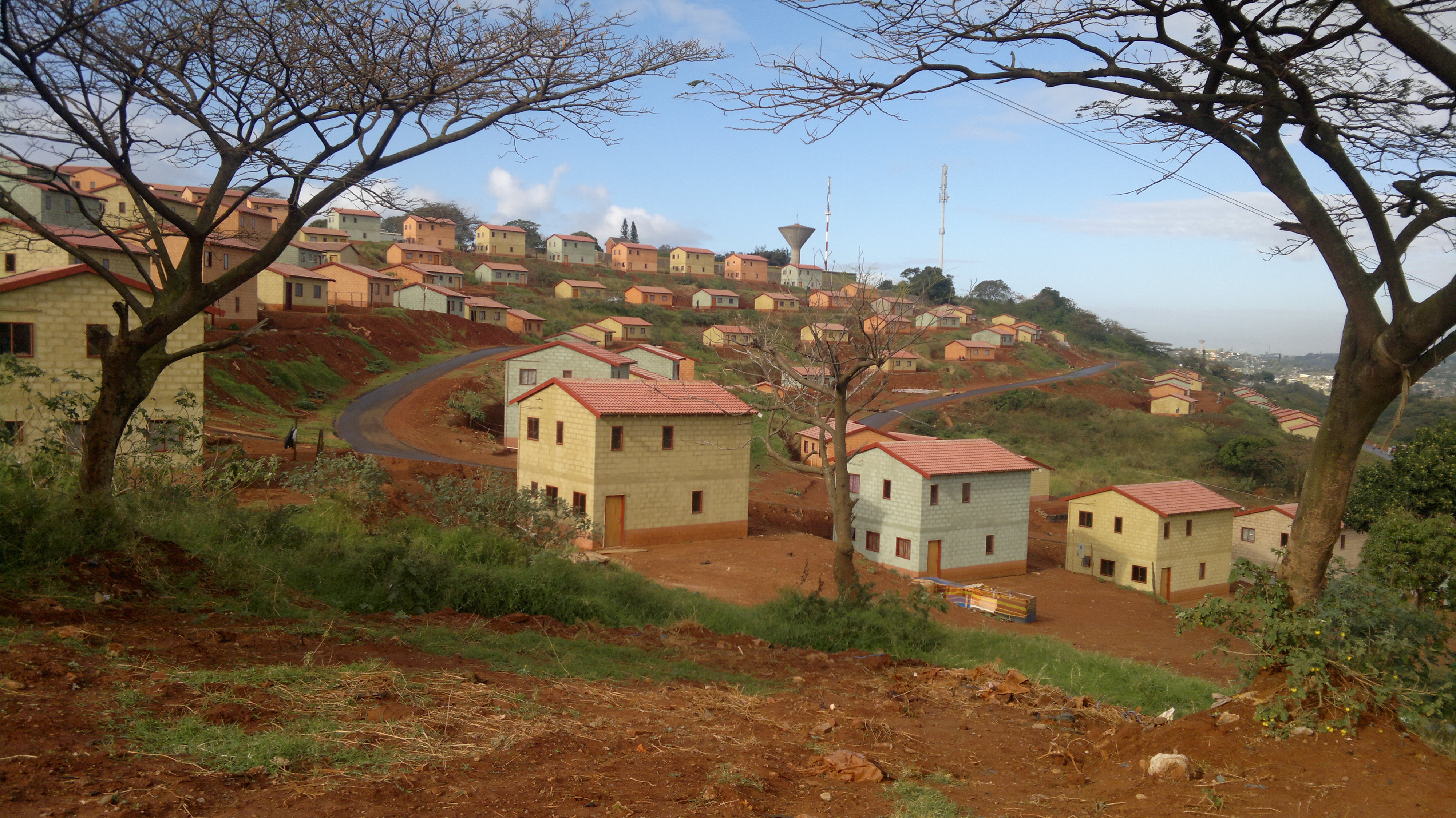Commentaries on the draft White Paper for Human Settlements

Early in 2024, the South African Department of Human Settlements was accepting comments on the draft White Paper they had publicly released. This went along with a series of consultations and engagements initiated by the Department with various sectors at the time. Official announcements about the call for public comment appeared on the Department’s website.
We have put together some of the media releases and commentaries as a record of the positions and views that were expressed about the draft White Paper by a variety of organisations.
Media articles
- Joint non-government organisation media article: Human settlements policy review requires great care and collaboration - In this opinion piece published in the Business Day, Nick Budlender and Fezeka Ludidi argue that South Africa’s human settlements policy requires a comprehensive and collaborative overhaul rather than minor adjustments. The article was co-written by Ndifuna Ukwazi and Built Environment Support Group, and on behalf of those organisation as well as Afesis, Centre for Affordable Housing Finance, Community Organisation Resource Centre, Development Action Group, Federation of the Urban Poor, Informal Settlements Network, Isandla Institute, Legal Resources Centre, People’s Environmental Planning, Planact, Project Preparation Trust and uTshani Fund. The current draft White Paper on Human Settlements, published in December 2023, acknowledges the significant shifts in land and housing dynamics since the last major policy review in 2004. While the government's consultative approach and extended deadlines for public comments are positive steps, the authors emphasise that a more inclusive, structured, and deliberative process is essential to address the housing crisis effectively. They advocate for a diverse Human Settlements Forum to ensure that new policies support sustainable, safe, and dignified housing development, learning from past experiences and international examples.
- The Socio-Economic Rights Institute, the Inner City Federation and Abahlali BaseMjondolo media article: New white paper on human settlements threatens a core constitutional right - Published in the Daily Maverick, this article critiques the draft White Paper on Human Settlements in South Africa, highlighting its potential to undermine constitutional housing protections. They say that the Paper, released for public comment in December 2023, has sparked concerns among civil society and legal experts alike, who argue that its proposed revisions to the Prevention of Illegal Eviction and Unlawful Occupation of Land Act (PIE Act) could weaken safeguards against arbitrary evictions. These protections, rooted in South Africa's constitutional framework established post-apartheid, aim to prevent the historical injustices of dispossession and forced removals. Despite 30 years of democracy and extensive case law reinforcing these rights, some of the White Paper's proposals have raised alarms about setbacks in housing rights and the consultation process's adequacy.
Submissions
- Centre for Affordable Housing Finance (CAHF) submission on the draft White Paper for Human Settlements for South Africa and a joint letter to the Minister - CAHF submitted a review (PDF, 330 KB) on March 15, 2024, highlighting certain issues in the draft White Paper, and suggesting the Department does more to incorporate past research, international benchmarks, and strategic reforms for the sector. CAHF, along with 31 NGOs, CSOs, and experts, also sent a joint letter (PDF, 513 KB) to the Minister of Human Settlements requesting more time for revisions and consultation. Additionally, CAHF supported an op-ed in Business Day article advocating for a consultative forum to improve the policy document. Their efforts aim to enhance the White Paper's quality and effectiveness in guiding housing policy for the next 30 years.
- Isandla Institute’s submission on the draft Human Settlements White Paper (PDF, 294 KB) - Isandla Institute also submitted comments on the draft White Paper for Human Settlements during the period for public comment. The White Paper, anticipated since 2015, was critiqued by Isandla Institute for missed opportunities in addressing current challenges within the human settlements sector. One significant proposal in their submission advocates for the inclusion of a clear policy stance on self-build as an official housing programme. This recommendation includes establishing local housing support centres and creating a public funding mechanism to assist those unable to secure sufficient private funds for housing. For more details, read the full submission (PDF, 294 KB).
- Ndifuna Ukwazi’s comment on the draft White Paper for human settlements (PDF, 280 KB) – This submission on the draft White Paper for Human Settlements reflects Ndifuna Ukwazi's appreciation for the initiative while highlighting significant concerns. They acknowledge the Paper's potential to provide much-needed policy clarity in South Africa's housing sector but critique its lack of detail and practical engagement. Ndifuna Ukwazi asserts that the proposed shifts towards site and service models and support for incremental housing lack sufficient consideration of spatial implications, potentially exacerbating segregation rather than mitigating it. They argue for a more comprehensive approach that addresses practical challenges, such as the distance of greenfield sites from economic centres, and they advocate for detailed proposals on funding, regulation, and institutional support. Furthermore, the organisation critiques the paper's treatment of backyard housing, small-scale developers, and informal settlements as insufficiently proactive, urging a more proactive stance in aligning policies with constitutional obligations and societal needs.
- Development Action Group (DAG) in partnership with the Cape Crisis Committee's submission to the National Department of Human Settlements on the Human Settlements White Paper, November 2023 (PDF, 485KB) - The submission by the Development Action Group (DAG) focuses on the collaborative efforts to address urban poverty, inequality, and housing issues in South Africa, highlighted by the recent convening of over 100 community partners at DAG’s Urban Dialogue/Forum 9. The dialogue, in partnership with the Cape Crisis Committee (CCC), emphasised the need for a commuter-centred public transport system after an eight-day taxi strike. This submission presents the collective input and recommendations from various community-based organisations (CBOs) and civil society organisations (CSOs) on the national government's Human Settlements White Paper. It underscores the importance of meaningful public participation in policy development. It calls for the government to extend timeframes and enhance engagement processes to ensure community voices are adequately represented in shaping housing and urban development policies.
- Development Action Group (DAG)'s submission to the National Department of Human Settlements on the Human Settlements White Paper, November 2023 (PDF, 431KB) - This submission by the Development Action Group (DAG) critiques the National Department of Human Settlements' White Paper for its lack of clarity and comprehensive strategies to achieve sustainable human settlements. DAG emphasises the need for extended public participation and revisions to ensure the policy adequately supports vulnerable and low-income families. The submission highlights concerns about the White Paper's approach to housing delivery, the prioritisation of certain vulnerable groups, and the implications for indigent families. DAG calls for better-defined mechanisms and strategies, more accessible language, and sufficient time for community input to ensure the policy effectively addresses spatial and economic inequalities and incorporates community perspectives.
- The Project Preparation Trust (PPT)'s feedback on draft White Paper for Human Settlements (PDF, 420KB) - The Project Preparation Trust (PPT) submission reviews the draft White Paper on human settlements in South Africa, highlighting the shift from state-funded housing to a state-enabled approach. However, it argues that the White Paper does not adequately address significant challenges relating to effective transformation, such as outdated analysis, inadequate attention to informal settlements, and insufficient focus on indirect levers of change. The submission emphasises the need for more flexible and incremental approaches, greater statutory and regulatory flexibility, and stronger civil society partnerships to address the housing backlog and urbanisation issues. It notes the participation of several South African CSOs in a joint submission and offers additional commentary and resources to assist stakeholders in developing a more viable strategy for human settlement transformation.
- Afesis's comments on the White Paper for Human Settlements (November 2023) (PDF, 1.31MB) - The submission by Afesis focuses on the need for significant revisions and a more inclusive feedback process. Afesis emphasises six key programmatic focus areas: Managed Land Settlement, Self-help Housing Support, Land Identification and Development, Community Development, Livelihood Development, and Social Cohesion and Urban Safety. Additionally, they highlight the importance of Innovation and Experimentation and Community Participation. The organisation calls for reactive and proactive incremental settlement approaches, like Managed Land Settlement, to address informal settlements and prevent continued land occupation. Afesis also advocates for new policy interventions and subsidy programmes to support self-build housing, stressing the need for the government to progressively realise the right to adequate housing.
- South African Slum Dwellers International Alliance's input for draft white paper on human settlements (PDF, 233KB) - The South African Slum Dwellers International Alliance (SA SDI Alliance) submitted key recommendations for the draft White Paper on Human Settlements, emphasising the need for adequate housing and basic services. Their input focuses on four critical areas: prioritising the Enhanced People's Housing Process (EPHP) and community-driven processes, supporting self-built housing in informal settlements, building capable local governments for policy implementation, and establishing a national multi-stakeholder platform for ongoing engagement and accountability. They advocate for a shift from state-provided housing to a facilitator role, recognising the importance of local government effectiveness, evidence-based policy, community involvement, anti-corruption measures, and the integration of informal settlement upgrading. Specific recommendations include the creation of a monitoring platform, clear EPHP guidelines, gender inclusion in construction, credible data collection, and flexible housing policies to address the unique needs of informal settlements. The SA SDI Alliance is made up of the Federation of the Urban and Rural Poor (FEDUP), the Informal Settlement Network (ISN), the Community Organisation Resource Centre (CORC) and uTshani Fund.
Further developments in the White Paper process should be available from the National Department of Human Settlement’s website.




Comments